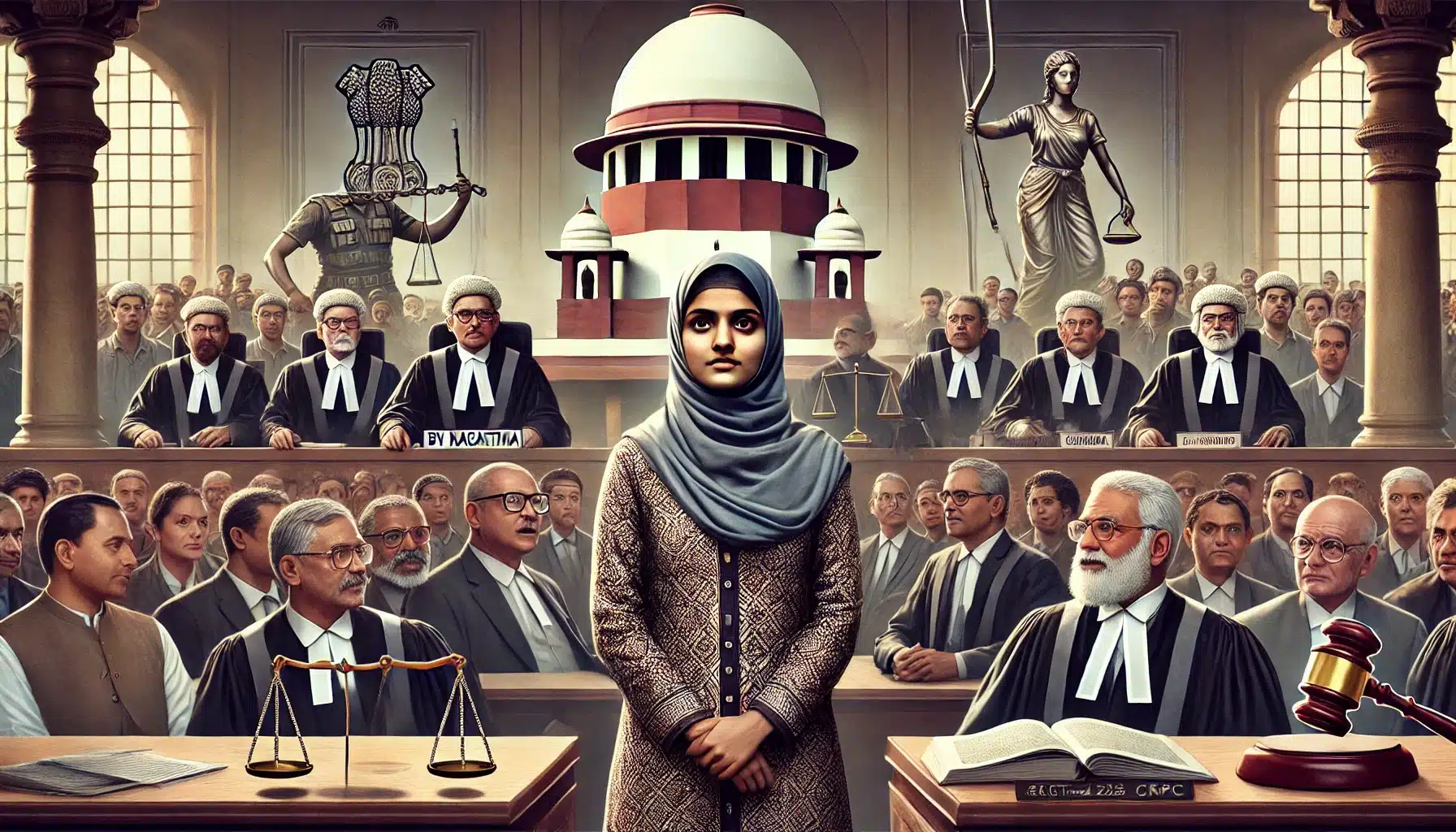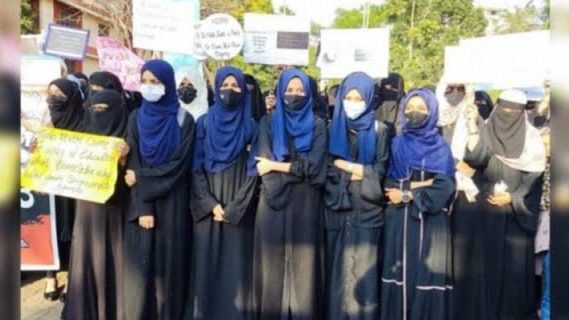A petition challenging the Bombay High Court’s decision to uphold a ban on religious attire at NG Acharya & DK Marathe College has reached the Supreme Court. The dress code prohibits wearing hijab, nakab, burkha, and similar items, sparking a debate over individual rights and institutional regulatio

A significant legal controversy has arisen following a recent judgment by the Bombay High Court, which upheld a dress code imposed by NG Acharya & DK Marathe College in Mumbai. The dress code prohibits students from wearing religious attire such as hijab, nakab, burkha, stole, cap, etc., while on campus. This ruling has sparked a debate over the balance between individual rights and institutional regulations, particularly regarding religious expression in educational settings.
Nine female students, who argued that the dress code violated their fundamental rights, challenged the decision. The case has now reached the Supreme Court of India, where a petition has been filed seeking to overturn the High Court’s ruling. The Supreme Court, under the direction of Chief Justice of India (CJI) DY Chandrachud, is set to address this issue, with the case scheduled for hearing soon.

Bombay High Court Judgment:
- The Bombay High Court had dismissed petitions on June 26, filed by nine female students against the dress code prescribed by NG Acharya & DK Marathe College, which prohibits religious attire within the college premises.
- The High Court, comprising Justice AS Chandurkar and Justice Rajesh S Patil, stated, “The object behind prescribing the dress code is evident from the Instructions since they state that the intention is that a student’s religion ought not to be revealed. It is in the larger academic interest of the students as well as for the administration and discipline of the College that this object is achieved. This is for the reason that students are expected to attend the educational institution to receive appropriate instructions for the advancement of their academic careers. The insistence on following the dress code is within the college premises and the petitioners’ freedom of choice and expression is not otherwise affected.”
- The dress code is intended to ensure that students’ attire is formal and decent, avoiding the revelation of any student’s religion.
Legal Background:
- The High Court referred to the Full Bench decision of the Karnataka High Court in Resham v. State of Karnataka, which upheld a similar dress code. The court expressed agreement with the Karnataka High Court’s view that a dress code helps maintain uniformity, discipline, and avoids revealing a student’s religion.
- The Karnataka High Court’s decision is currently pending review in the Supreme Court, following a split verdict in October 2022.
Petitioners’ Arguments:
- The petitioners argued that the dress code violated their fundamental rights under the Indian Constitution, including the right to choose their attire, right to privacy, right to expression under Article 19(1)(a), and right to freedom of religion under Article 25.
- The students contended that the dress code is arbitrary and discriminatory, infringing upon their freedom of choice.
Filing Details:
- The Special Leave Petition in the Supreme Court was drafted by Advocate Hamza Lakdawala and filed through Advocate Abiha Zaidi.
- The petition was brought with urgency due to the upcoming unit tests.





